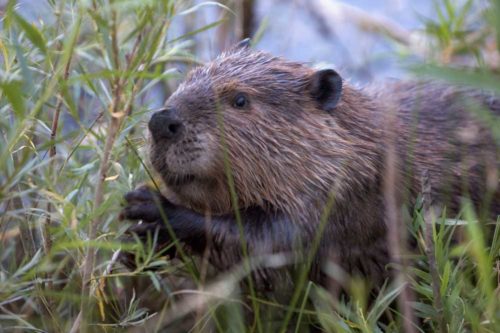SUBSCRIBE TO THE FREE NEWSLETTER
Support Cascadia Daily & Cascadia Magazine on Giving Tuesday
Hello reader,
Thanks for reading Cascadia Daily and Cascadia Magazine! As you may have heard, today is Giving Tuesday, a time when people across the world commit to making financial contributions to the organizations they’re passionate about.
If you enjoy the selection of news, arts, and culture you receive in the Cascadia Daily email, we’d appreciate if you’d take a moment to make a contribution at our donate page. In addition, you’ll be supporting the original journalism, photography, essays, fiction, and poetry we publish online at Cascadia Magazine.
No other publication is dedicated to covering the entire Cascadia bioregion stretching across Oregon, Washington, and British Columbia – and including parts of Idaho, Montana, California, and Alaska.
If you appreciate the quality writing you find at Cascadia Magazine and the informative selection of links you receive each day in Cascadia Daily, please help us continue that work with a contribution. It’s easy and you can donate at any level you’re comfortable with. Find out more here.
And to our supporting members, we offer our sincere thanks. You’re making it possible to publish writing about issues that matter in the Pacific Northwest.
Cascadia Magazine original:
Spokane gets creative
Spokane, Washington has booming art scene, thanks to a group of young arts activists working for organizations including Spark Central, Laboratory, and Terrain. In a feature online now at Cascadia Magazine, Carrie Scozzaro looks that how these groups are building a creative community in the Lilac City. Read more here.
Climate change’s impact on Cascadia
According to OPB, the recent US federal report on climate change has an entire chapter on impacts to the Pacific Northwest, and the news isn’t good. Increased fires, algae blooms that destroy salmon runs, more droughts and a severe hit to winter recreation industries are just the start. Meanwhile, Willamette Week reports that an environmental group is suing the Trump administration in a Portland federal court for a shellfish die-off in Oregon they say is caused by inaction on climate change. And at Crosscut, political scientists look at why the recent carbon tax initiative in Washington failed to pass.
Working to end Indigenous apprehensions in BC
At the Tyee, Katie Hyslop reports on Patricia Dawn’s campaign to curtail the flawed system that sends many Indigenous children into foster care in British Columbia. The article notes that two thirds of all the 6,000 children in foster care in the province are Indigenous. In related news, National Observer covers the release of an international report finding that BC needs to do a better job of including First Nations input prior to governmental actions. In more positive news, the province announced increased funding for 1,100 units of affordable housing for Indigenous communities.
Seattle home prices falling at fastest rate in US
The Seattle Times reports that, following a huge real estate bubble, home prices in Seattle are now falling at the fastest rate in the US. Meanwhile, the Portland Mercury reports on a neighborhood group in northwest Portland that’s appealing plans for affordable housing on the grounds it’s ugly. And on the topic of housing affordability, on Tues. Dec. 4 at 3:30 pm in Seattle City Hall, a panel of experts on zoning from Seattle, Portland, and Vancouver BC will explore strategies to create more housing while also mitigating the racist legacy of red-lining and apartment bans in the major cities of Cascadia. More info here.
Beaver dams help repair salmon habitat in WA
Sarah Hoffman, reporting for Crosscut, has a video feature on how the relocation of beavers to streams in the foothills of the Cascades of Washington is rapidly creating new habitat and spawning grounds for wild salmon. In related news, KUOW has a discouraging report about how drug-resistant bacteria are now passing from humans into Puget Sound ecosytems, and making everything from otters to orcas sick.
How a BC town secretly helped the Manhattan Project
BC BookLook has a review of Codename Project 9, a detailed history by Ron Verzuh that details the little-known story of how a smelter plant in Trail, BC helped produce heavy water for the Manhattan Project, the secret US effort to build the first atomic bomb.
Sharma Shields reads a poem by Lucia Perillo
Over at Spokane public radio, novelist Sharma Shields reads “Dangerous Life,” by the late poet and Washington resident Lucia Perillo in the latest installment of the station’s Poetry Moment.
“…That morning as the wind was mowing
little ladies on a street below, I touched a Bunsen burner
to the Girl Scout sash whose badges were the measure of my worth…”
Listen to the full poem here. Or read it for yourself here.
That’s today’s bursting cornucopia of news, arts, and other stuff from across the Pacific Northwest. If you like this daily newsletter, please consider becoming a supporting reader. Thanks! –Andrew Engelson
Photo credit: beaver by Wikimedia Commons user cszmurlo CC BY-SA 3.0

